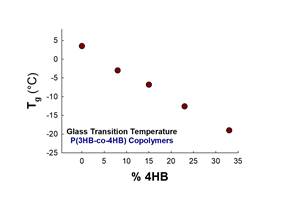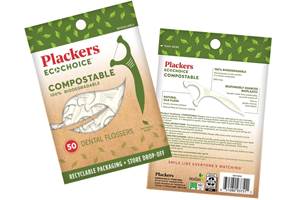Genomatica Survey Shows Sustainability is Embraced by Americans Despite COVID-19
According to Genomatica’s survey, sustainability will have staying power even amid health and economic turmoil.
Four months into unprecedented health and economic disruption, new research shows sustainability has moved from a fringe preference into a core imperative across American life. San-Diego-based biotechnology company recently shared the results of a survey that show that sustainability is now a top-of-mind issue with an overwhelming majority (85%) of Americans reporting they’ve been thinking about sustainability the same amount or more during the COVID-19 pandemic. Included are those thinking about it more noticing less traffic (45%), cleaner air (42%) and more plastic waste (40%). They’re also demanding action: more than half (56%) of Americans want both the government and brands to prioritize sustainability even while facing other issues
Genomatica develops commercial biobased processes to make widely-used chemicals that enable better more sustainable products. Their aim has been to enable their partners and leading brands to offer better food packaging, auto parts, clothing, tires, carpets, cosmetic ingredients, cleaning products and more. For example, the company has commercialized processes for bio-BDO (1,4-butanediol) for plastics. The company’s process, which converts sugars into BDO in a patented direct fermentation process, has been used by companies such as Lanxess to produce compounds based on biobased Pocan PBT.

San Diego-based Genomatica’s lab facility.
Some of the key findings of the Genomatica survey include:
â–ª 86% of Americans say sustainability will be equally or more important when the pandemic subsides.
â–ª Nearly half (48%) of those who’ve been more sustainable say they’re inspired to find ways to keep being sustainable and 42% realize being sustainable is easier than they thought.
â–ª Six in 10 (59%) of those who admit being less sustainable during COVID-19 say they don’t like it, with 43% calling it a “necessary evil” and 36% saying they feel guilty about it.
In addition, the Genomatica survey shows that the rise of sustainability has taken root across an array of surprising groups:
â–ª For those feeling the brunt of COVID-19—Nearly half (46%) of those who say they live in areas hit hard by COVID-19 claim they’ve been thinking more about sustainability, while 43% of Americans who’ve been laid off, furloughed or seen job disruption say they would still pay more for sustainable products.
â–ª Across ideologies—Nearly half (46%) of Republicans say the government should continue to prioritize sustainability. Fox News viewers are as likely as anyone else to say the pandemic has made them personally more sustainable.
Said Genomatia’s CEO Christophe Schilling, “The collective consciousness on sustainability is rising, and certainly faster than most would have expected during these unprecedented times. While this shift has been underway for decades, and particularly strong in Europe, many of us in the U.S. have been inspired by the rapid improvement in air quality and traffic that shine a bright light on how our behaviors and decisions impact our environment and quality of life. As brands are learning, Americans are increasingly spending in line with their values, fueling a ray of hope in a tough year.”
Other findings from the Genomatica study include:
Americans believe life at home is more sustainable
- Six in 10 Americans (59%) say working from home is more sustainable than working in an office, with just 13% disagreeing.
- The top reasons? No need to commute (85%), followed by using less energy to heat and cool large workplaces (64%).
- Americans who have been more sustainable lately cite driving less as the number one reason (68%), followed by buying less stuff (54%), throwing fewer things away (42%), not commuting (41%) and flying less (37%).
- Three times as many Americans say they’ll drive less, as opposed to driving more, this year.
Americans seek more sustainable products — but are hesitant to return to the sharing economy or public transit
- More than a third (37%) of Americans are willing to pay a little more for sustainable products, even during an economic downturn — and across age groups, Gen Z is the most willing (43%).
- Of Americans who have been more sustainable lately, one in three (32%) say it’s because they’re buying more sustainable products.
- Four in five (82%) Americans trust natural-based cleaners to protect against COVID-19.
- Half of Americans are comfortable using natural cleaning products today (50%) and even more (60%) will be comfortable using reusable bags at the store as soon as they’re allowed to.
- Half of Americans won’t be comfortable using sharing economy services like Uber or Airbnb (53%), riding public transportation (54%) or carpooling (50%) until there is a vaccine, if ever.
Related Content
Multilayer Solutions to Challenges in Blow Molding with PCR
For extrusion blow molders, challenges of price and availability of postconsumer recycled resins can be addressed with a variety of multilayer technologies, which also offer solutions to issues with color, processability, mechanical properties and chemical migration in PCR materials.
Read MoreFilm Extrusion: Boost Mechanical Properties and Rate of Composting by Blending Amorphous PHA into PLA
A unique amorphous PHA has been shown to enhance the mechanical performance and accelerate the biodegradation of other compostable polymers PLA in blown film.
Read MoreThe Importance of Mass Balance in Chemical Recycling
Approaches to mass balance can dramatically impact calculations of recycled content.
Read MoreHow to Optimize Injection Molding of PHA and PHA/PLA Blends
Here are processing guidelines aimed at both getting the PHA resin into the process without degrading it, and reducing residence time at melt temperatures.
Read MoreRead Next
See Recyclers Close the Loop on Trade Show Production Scrap at NPE2024
A collaboration between show organizer PLASTICS, recycler CPR and size reduction experts WEIMA and Conair recovered and recycled all production scrap at NPE2024.
Read MoreFor PLASTICS' CEO Seaholm, NPE to Shine Light on Sustainability Successes
With advocacy, communication and sustainability as three main pillars, Seaholm leads a trade association to NPE that ‘is more active today than we have ever been.’
Read More












